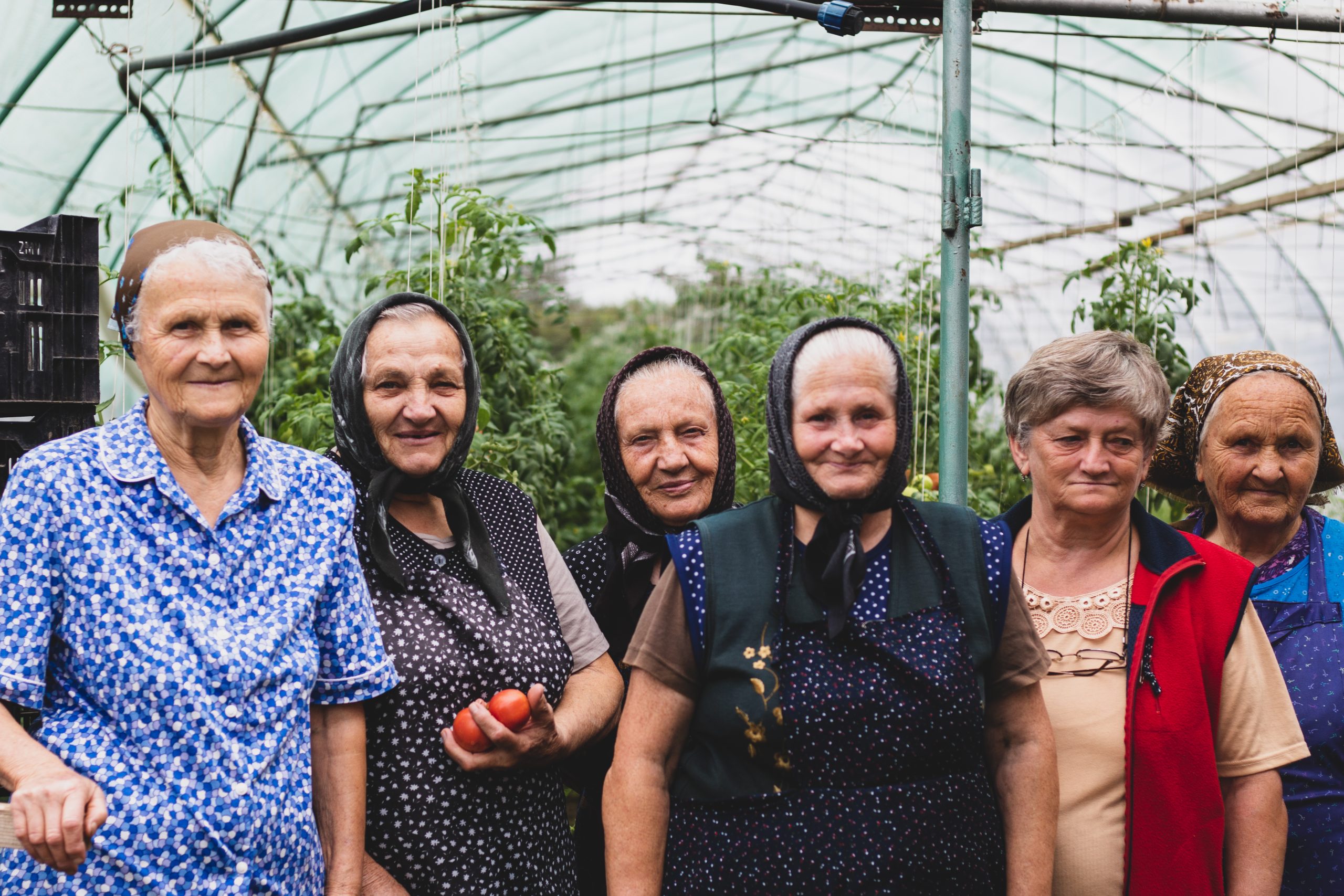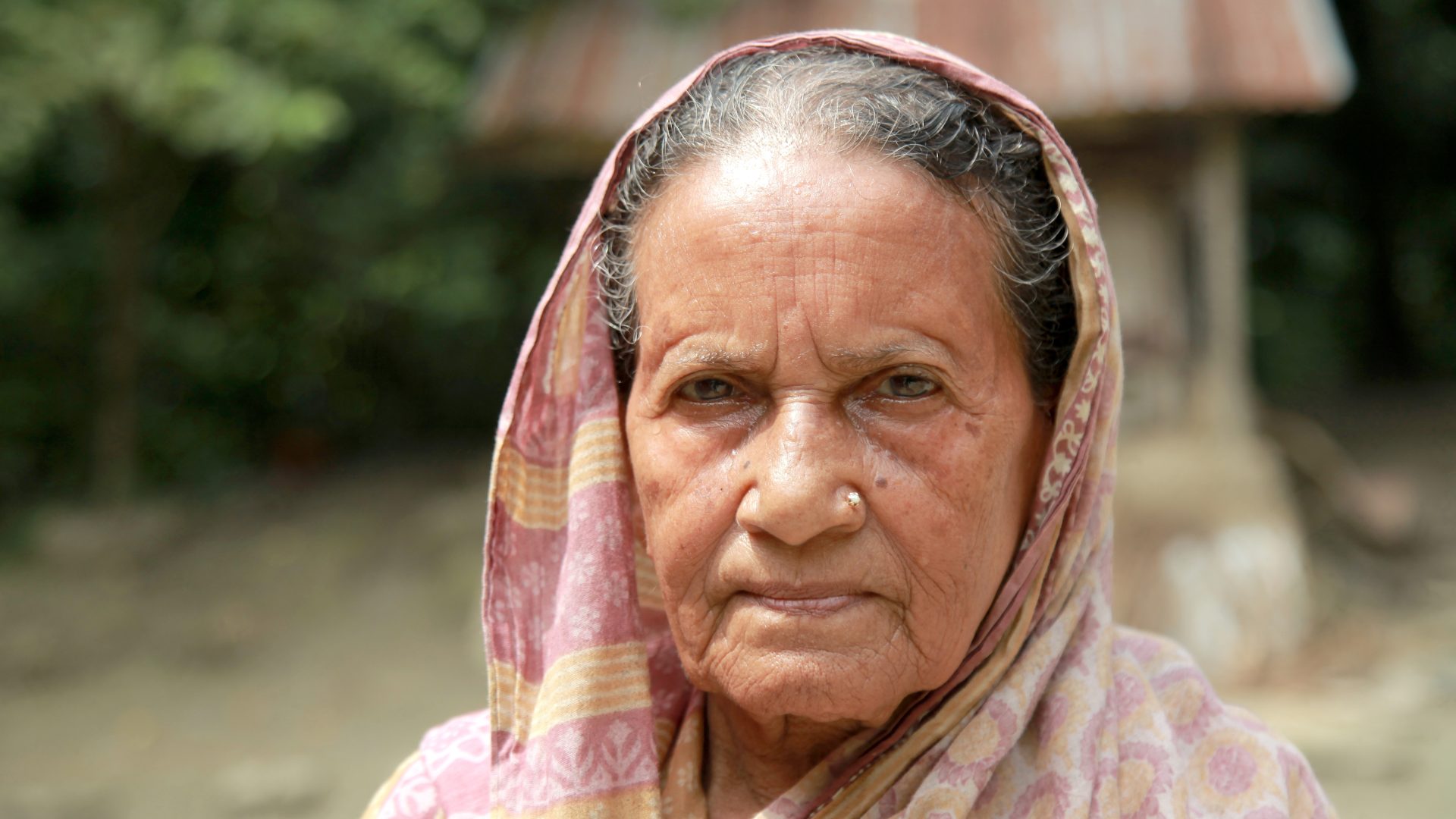Exclusion of older women from global gender debates
Entering the UNHQ building on day one of this year’s Commission on the Status of Women, along with colleagues and members of the HelpAge global network, we were hopeful about the change that we wanted to see.
More than a quarter of the world’s women are over the age of 50 but they are constantly ignored in policy debates. Discussions on gender equality routinely exclude the voices and perspectives of women over reproductive age.
Our mission in New York was to shed light on the injustice faced by older women in poverty. They are more vulnerable than older men due to lifelong inequalities and discrimination. Our goal was to push for social protection systems that prioritise rights, are universal, and responsive to age, gender, and disability. This shift will help lift older women out of poverty and foster gender equality.
There were an overwhelming number of events to choose from, often more than 100 a day, with people shuffling from one event to another. Rooms crammed to capacity as high level speakers rolled in to meetings and out again. Everyone present was striving for the same thing – the achievement of gender equality and women’s empowerment.
These events were great for learning and exchanging ideas, from the importance of intersectional data and financing for the achievement of gender equality, to the role of women in the care economy. One heartbreaking discussion on the situation of women in Afghanistan led by women’s rights activist, Mahbouba Seraj, left me in tears with her impassioned speech stating that girls and women had been completely erased from life in her country.
But it was obvious that older women’s perspectives and experiences had not been considered in the majority of sessions I attended, and the focus remained on the youth and achieving gender equality for them.
Older women’s perspectives
Working alongside Amarsanaa Darisuren, a 66-year-old Mongolian woman, we were able to articulate what the meaningful participation of an older women looks like. At various events Amarsanaa delivered the perspectives of older women from across Mongolia. She highlighted the experiences of rural herding women who are systematically left out of decisions that affect their lives and rights (from household to community level, as well as national policies) to older women in urban areas for whom social pensions not only meet their basic needs, but also support their household and family needs, including the costs of their grandchildren’s education. She showed how older women often put the needs of others in front of their own.
At events organised by HelpAge, we highlighted the lived experiences of older women with relation to poverty and injustice. Using our new policy report ‘Achieving gender equality through social protection in an ageing world’, we co-organised a side event with the ILO and the government of Ireland to highlight older women’s experiences of social protection systems in Ethiopia, Malawi and Tanzania. Emma Kaliya a member of the HelpAge global network from Malawi Human Rights Organisation was a member of the panel. It was truly enlightening when she spoke about the issues faced by older women in her country, including gender-based violence, accusations of witchcraft and extreme levels of poverty.
HelpAge’s CEO, Cherian Mathews participated as a speaker in an event organised by the Arab Women’s Organisation and the government of Libya to highlight an often-neglected issue – the importance of the protection and inclusion of older women in response to conflicts and wars in the Arab region.

How do we shift the discussion?
I experienced many ‘light bulb’ moments when discussing issues faced by older women with other participants or watched the faces of audience members when our panellists discussed their experiences. This was great to see but we now need to keep these switches on and turn them into collaboration to support our work and actions.
We need to work to make the lived experiences of older women understood: Effective polices that reflect and uphold the rights of older women will only come about if we are willing to confront the reality of what life is like for an older woman. We need to achieve a better understanding of the lived experiences of older women worldwide which can only be achieved by investing in sex–, age–, and disability-disaggregated data, including disaggregation at a minimum of 10-year age cohorts for older women.
Let’s focus on intergenerational perspectives rather than just on youth: The focus on ‘youth’ is a recurring theme in many international meetings, and CSW68 was no different. Whilst I am not suggesting we should move away from ensuring girls and young women are involved in the change they would like to see, I would urge everyone to look at gender across the life course, and bring an intergenerational perspective on the topic. HelpAge Germany, together with Plan International collaborated on one such event which looked at the perspectives of younger and older women towards ageism and poverty. Working together to advocate for change will be stronger than pitting generations against each other.
If we continue to ignore older women, we will never make the necessary strides to achieving gender equality (it is already anticipated that it will take 131 years to close the gender equality gap!).
I heard many older women say that they were still advocating for women’s rights 30 years on from the signing of the Beijing Declaration, and in response a younger activist said she did not want to be here in 30 years’ time. I completely agree with this statement, but to ensure that we strive for gender equality for girls and women of all ages, governments, civil society organisations and gender activists need to ensure older women can meaningfully participate in these debates and can advocate for their rights.
I am encouraged by the progress made in our advocacy to include a life course perspective to the final agreed conclusions for CSW68 – five references compared to two in the draft document and the recognition of economic and social discrimination of women and girls contributing to poverty in older women. But we still have a long way to go to ensure that the rights of older women are not only protected but promoted at all levels.
I hope to come back to CSW69 in a year’s time with more of our network members, older women activists as well as gender organisations confidently advocating for older women’s rights as part of the formal agenda and governments reflecting the rights and needs of older women in the agreed conclusions.
—
This blog is written by Tanvi Patel, Global Gender Policy Adviser at HelpAge International.
The 68th session on Commission on the Status of Women (CSW68) took place in New York from 11-22 March.

